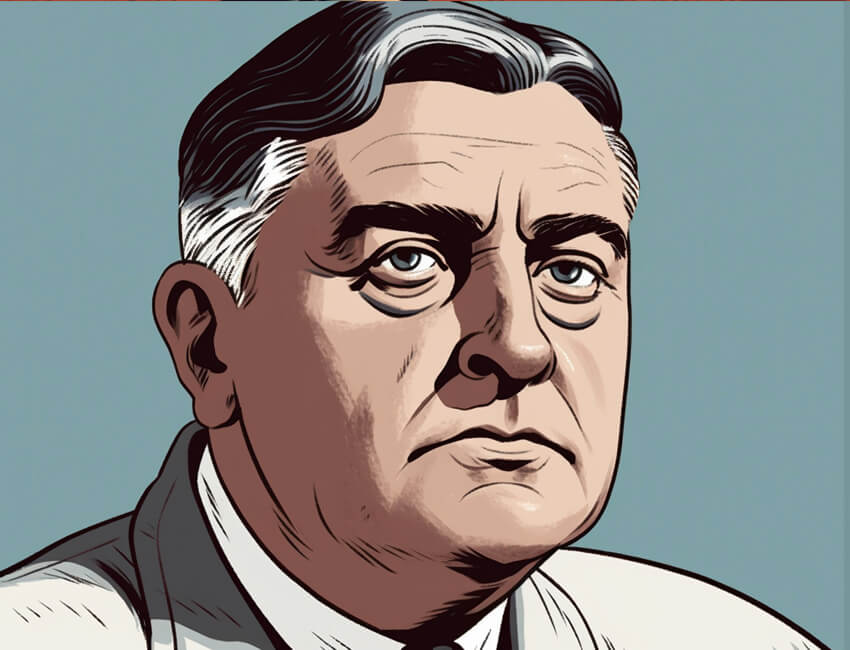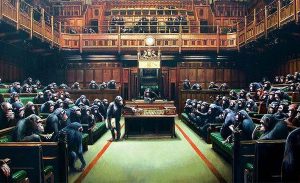The National Health Service (NHS) stands as a symbol of universal healthcare and social progress in the United Kingdom. At the heart of its creation lies Aneurin Bevan, widely known as Nye Bevan, a visionary politician who championed the cause of accessible and comprehensive healthcare for all.
This article explores the origins of the NHS and Bevan’s pivotal role in its establishment, highlighting his unwavering commitment to providing healthcare as a fundamental right to every citizen.

The Healthcare Landscape Before the NHS
Prior to the creation of the NHS, healthcare in the UK was a patchwork of private and charity-based systems, leaving millions unable to afford essential medical care. This unequal and fragmented healthcare landscape prompted Bevan, as Minister of Health, to envision a radical transformation that would offer healthcare services to every individual, irrespective of their socioeconomic status.
Nye Bevan: The Architect of the NHS
Nye Bevan, a Labour Party politician and Minister of Health from 1945 to 1951, spearheaded the efforts to establish a comprehensive and publicly funded healthcare system. His unwavering commitment to the principles of equality and social justice led to the creation of the NHS, a landmark achievement that has since become a cornerstone of British society.

Nye Bevan, born on November 15, 1897, in Tredegar, South Wales, emerged from humble beginnings that shaped his deep-rooted commitment to social justice. Growing up in a working-class family, Bevan experienced firsthand the harsh realities faced by the labouring masses. His exposure to the struggles of coal miners and their families, as well as witnessing the impact of poverty and inadequate healthcare, fuelled his determination to fight for a fairer society.
Bevan’s political journey began in the aftermath of World War I when he joined the South Wales Miners’ Federation and became an active trade unionist. His involvement in labour movements and socialist organisations propelled him into politics, ultimately leading him to the Labour Party. Bevan’s political rise was marked by his exceptional oratory skills, intellectual prowess, and unwavering commitment to socialist principles.
As a Member of Parliament for Ebbw Vale, Bevan quickly gained recognition for his passionate advocacy for working-class rights and his eloquent speeches that resonated with both his constituents and fellow parliamentarians. It was during his tenure as Minister of Health in Clement Attlee’s post-war Labour government that Bevan left an indelible mark on history with the creation of the NHS.
Bevan’s deep-rooted socialist beliefs and his belief in the power of collective action and social solidarity formed the backbone of his political ideology. He rejected the notion that healthcare should be a privilege reserved for the wealthy, and instead championed the concept of healthcare as a fundamental right for all. Bevan’s experiences growing up in a mining community, witnessing the hardships faced by working-class families, and recognising the inequalities within the existing healthcare system, inspired him to spearhead the establishment of a truly comprehensive and accessible healthcare service.
In negotiating the complexities of implementing the NHS, Bevan faced staunch opposition from various quarters, including within his own party, from vested interests, and from critics who feared the financial implications of such a radical reform. However, Bevan’s political astuteness, determination, and persuasive skills enabled him to navigate these challenges, ultimately culminating in the birth of the NHS on July 5, 1948.
Beyond his contributions to healthcare, Nye Bevan played a significant role in shaping the social and political landscape of post-war Britain. He championed progressive policies and was a vocal advocate for workers’ rights, welfare reforms, and public ownership of key industries. Bevan’s unwavering commitment to social justice and his belief in the transformative power of the state in improving the lives of ordinary people solidified his reputation as a prominent figure in British politics.
Nye Bevan’s legacy extends far beyond his tenure as Minister of Health. His vision and determination to create a fairer and more egalitarian society continue to inspire generations of politicians, activists, and citizens alike. The NHS remains a testament to Bevan’s enduring legacy, serving as a beacon of hope, solidarity, and equal access to healthcare for all.
The Birth of the NHS
On July 5, 1948, the National Health Service Act came into effect, bringing the NHS to life. Bevan’s tireless efforts and political acumen were instrumental in navigating the complexities of implementation and overcoming opposition. The NHS was designed to provide healthcare services that were free at the point of use, funded through general taxation, and accessible to all, regardless of their financial means.
Bevan's Vision and Principles
Nye Bevan firmly believed that health services should not be commodified and that access to healthcare should be based on need, not the ability to pay. He emphasized the importance of prevention, primary care, and community-based services, aiming to provide holistic and comprehensive healthcare to improve the overall well-being of the population.
The Legacy of the NHS
The establishment of the NHS was a watershed moment in British history. It represented a seismic shift towards a more egalitarian society, where healthcare became a fundamental right rather than a privilege. The NHS has since become a source of national pride and has had a profound impact on the lives of millions, saving countless lives and offering care and support across the country.
The NHS Today
In the present day, the NHS stands as a cherished institution and a testament to Nye Bevan’s vision. However, it has not been immune to the challenges and pressures imposed by political and economic factors. In particular, the NHS has faced significant hurdles during periods of Conservative rule, which have had a profound impact on its functioning and the well-being of its staff and patients.
Underfunding has been a persistent issue for the NHS in recent years. Throughout the 13 years of Conservative rule since 2010, austerity measures and budget constraints have resulted in insufficient funding for the healthcare system. This chronic underfunding has strained resources, impeded service delivery, and placed an increasing burden on healthcare professionals. Hospitals have faced overcrowding, longer waiting times, and a shortage of necessary equipment and resources, which ultimately affect patient care and outcomes.
One of the consequences of underfunding is the underpayment of healthcare workers, particularly nurses. The dedication and hard work of nurses are crucial to the smooth functioning of the NHS, yet they have often been undervalued and undercompensated. Years of pay freezes, limited salary increases, and inadequate investment in workforce development have led to low morale and widespread recruitment and retention issues within the nursing profession. This has a detrimental impact on the quality of patient care and the overall sustainability of the healthcare system.
Additionally, privatisation and market-oriented reforms have posed significant challenges to the NHS. The outsourcing of services, the introduction of market mechanisms, and the increasing involvement of private healthcare providers have raised concerns about the erosion of the NHS’s founding principles and the potential for profit-driven decision-making. Critics argue that these changes have fragmented the system, prioritized profitability over patient well-being, and compromised the universality and equity of healthcare provision.
The COVID-19 pandemic further exposed the strains on the NHS, revealing the consequences of years of underinvestment and a lack of preparedness. The pandemic placed an unprecedented demand on the healthcare system, highlighting the need for increased resources, improved infrastructure, and robust workforce planning. The heroic efforts of healthcare professionals during this challenging time have underscored the critical importance of adequately supporting and investing in the NHS.
Despite these challenges, the NHS remains a symbol of national pride and resilience. It continues to deliver high-quality care to millions of people, saving lives and providing essential services to communities across the country. The dedication and commitment of NHS staff, in the face of significant pressures and resource constraints, exemplify the enduring spirit of the healthcare system.
As debates surrounding the future of the NHS persist, there is a growing recognition of the need for sustained investment, fair remuneration for healthcare workers, and a reaffirmation of its core principles. Many advocate for increased funding, improved integration of services, and a recommitment to the founding ideals of universality and equitable access to healthcare.
Nye Bevan’s vision and unwavering determination led to the creation of the NHS, a transformative institution that has revolutionized healthcare in the United Kingdom. His commitment to equality, accessibility, and the principle that healthcare should be free at the point of use laid the foundation for a system that has become an integral part of British society. The NHS stands as a shining example of how a nation can come together to provide universal healthcare for the betterment of all its citizens.


















